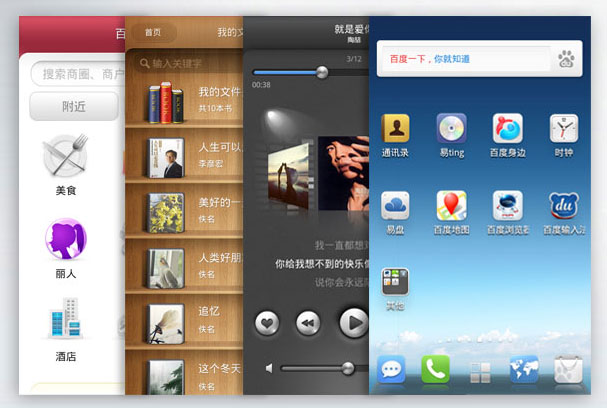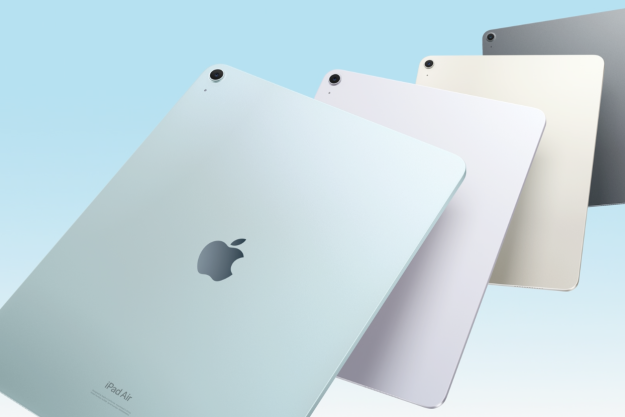
At its annual Baidu World event in Beijing, leading Chinese search engine Baidu announced it will be offering its own Android-based mobile operating system, dubbed Baidu Yi—”Yi” translates as “Easy.” The mobile OS builds on Google’s Android operating system, but directly integrates Baidu service offerings, including Baidu’s mapping service, an ereader, a location-savvy business directory, and Ting, Baidu’s legal music service. Baidu Yi will also support technology Baidu has already rolled out for Android devices— including its input method for typing or hand-drawing Chinese script—as well as cloud-supported services for data back and social sharing.
The move comes shortly after Chinese e-commerce giant Alibaba announced it was launching its own mobile operating system dubbed Aliyun, with integrated support for Alibaba services. Aliyun is based on Linux, but will reportedly run Android apps.
Baidu already has a strong presence on Android devices in China, with some industry estimates putting Baidu search on 75 to 80 percent of all Android devices sold in the country. After Google’s retreated from the Chinese search market in the wake of cyberattacks and ongoing censorship requirements, Baidu has capitalized on the opportunity: the company now has roughly an 80 percent share of the Chinese search market. Baidu claims some 200 million registered users.
Some industry watchers have questioned why, with such a strong presence on Android and search in China, Baidu feels a need to launch its own operating system. The answer is likely that Baidu needs to create an ecosystem of customers—not just users—who rely on a broad swath of its services, rather than just search. Baidu Yi will primarily be a platform that features an integrated, complete Baidu experience, in the same way a pure Android smartphone currently represents a pure Google experience, without overlays, crapware, and revamped interfaces imposed by handset developers and carriers. Sure, plenty of phones will have Baidu search and other services, but the company apparently hopes mobile users will want to buy into a first-class Baidu experience.
Editors' Recommendations
- Oppo’s Android 12-based ColorOS 12 is coming to the Find X3 Pro in December
- YouTube launches fresh new homepage on iOS and Android tablets and desktops
- Android 10: All the new features in the latest version of Google’s mobile OS

